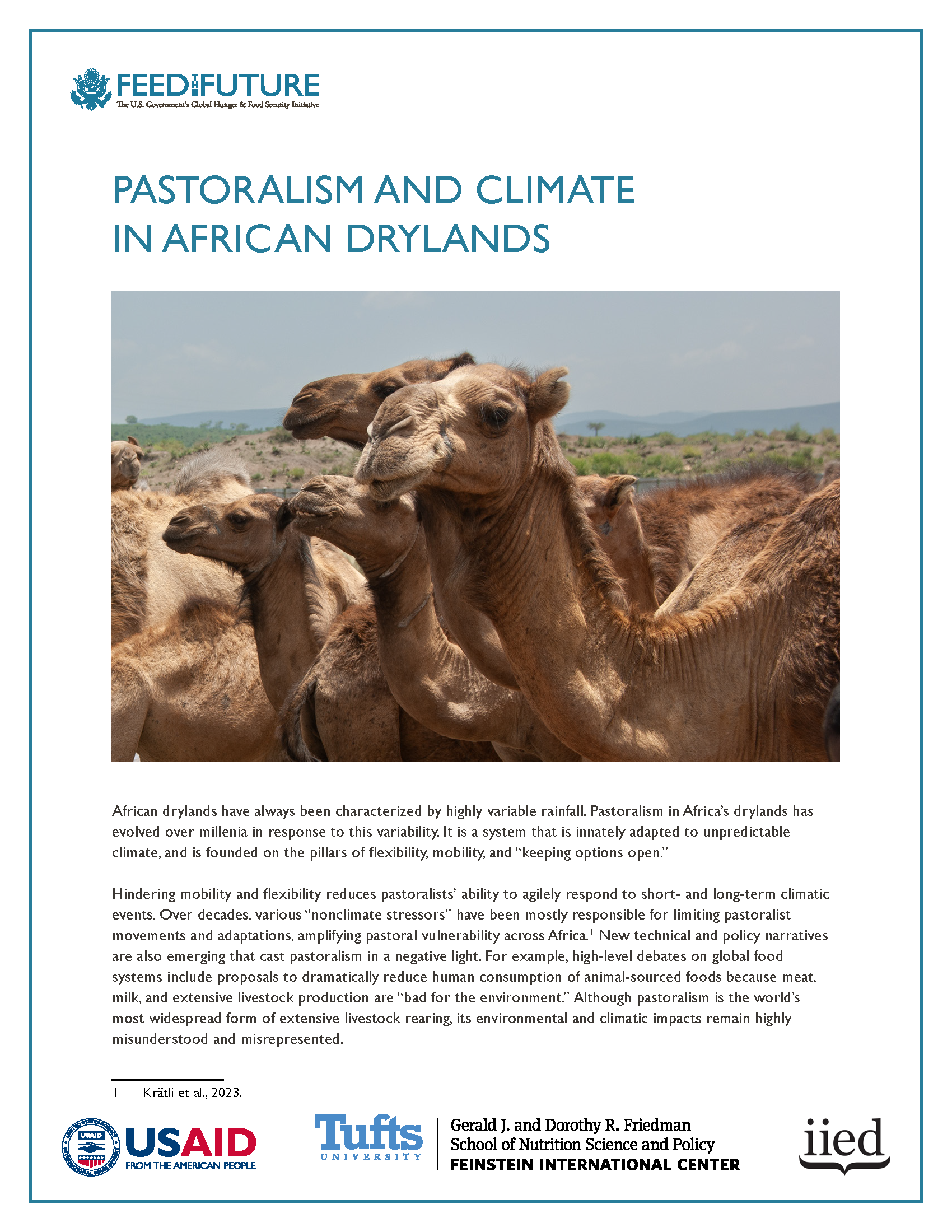This briefing paper presents African pastoralism as an adaptation to uncertain and changeable climate, as well as some of the main challenges that compromise pastoralists’ inherent adaptive capacity. It is a complement to Pastoralism in Africa: A Primer.
The paper is divided into five parts. Part one is an introduction to pastoralism and climate variability in Africa. Part two focuses on pastoralism in the context of climate change.
Part three lays out key nonclimate stressors that cripple pastoralists’ ability to adapt and increase their vulnerability. Part four analyzes the narrative linked to “livestock, meat, and milk are bad for the environment.” Part five presents key conclusions and recommendations.
The production of this briefing paper was funded by the United States Agency for International Development via Cooperative Agreement No. 7200AA21CA00020, Pastoralism in Africa, to the Feinstein International Center, Friedman School of Nutrition Science and Policy at Tufts University.







